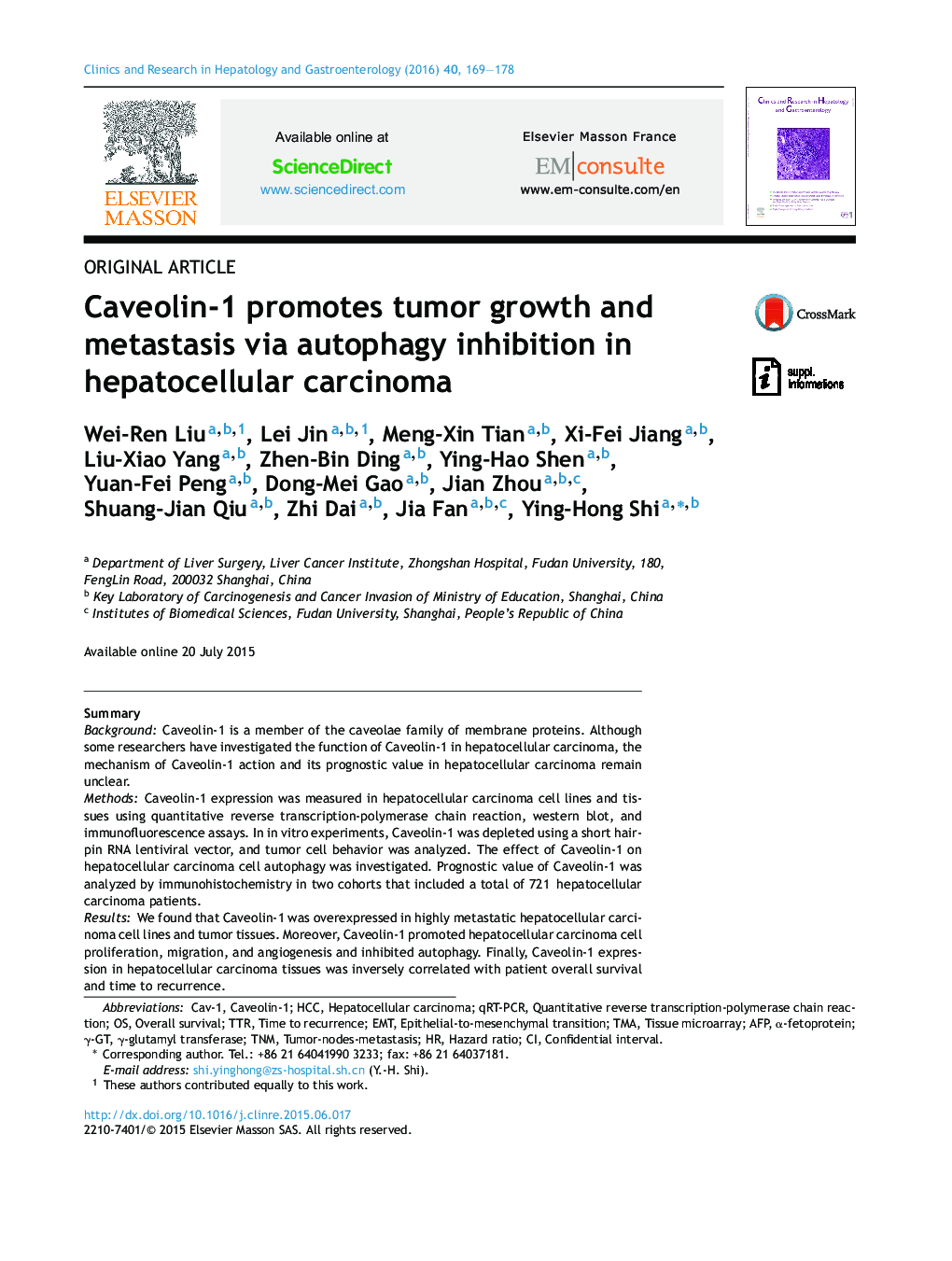| Article ID | Journal | Published Year | Pages | File Type |
|---|---|---|---|---|
| 3286024 | Clinics and Research in Hepatology and Gastroenterology | 2016 | 10 Pages |
SummaryBackgroundCaveolin-1 is a member of the caveolae family of membrane proteins. Although some researchers have investigated the function of Caveolin-1 in hepatocellular carcinoma, the mechanism of Caveolin-1 action and its prognostic value in hepatocellular carcinoma remain unclear.MethodsCaveolin-1 expression was measured in hepatocellular carcinoma cell lines and tissues using quantitative reverse transcription-polymerase chain reaction, western blot, and immunofluorescence assays. In in vitro experiments, Caveolin-1 was depleted using a short hairpin RNA lentiviral vector, and tumor cell behavior was analyzed. The effect of Caveolin-1 on hepatocellular carcinoma cell autophagy was investigated. Prognostic value of Caveolin-1 was analyzed by immunohistochemistry in two cohorts that included a total of 721 hepatocellular carcinoma patients.ResultsWe found that Caveolin-1 was overexpressed in highly metastatic hepatocellular carcinoma cell lines and tumor tissues. Moreover, Caveolin-1 promoted hepatocellular carcinoma cell proliferation, migration, and angiogenesis and inhibited autophagy. Finally, Caveolin-1 expression in hepatocellular carcinoma tissues was inversely correlated with patient overall survival and time to recurrence.ConclusionOur data obtained from cell lines suggest an oncogenic role for Caveolin-1 in hepatocellular carcinoma, Caveolin-1 contributed to hepatocellular carcinoma cell autophagy deficiency. Furthermore, Caveolin-1 may function as a novel prognostic indicator for hepatocellular carcinoma patients after curative resection, and combination of targeted therapy aimed at Caveolin-1 and autophagy modulation may represent an effective way to treat hepatocellular carcinoma.
